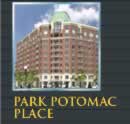 Moody's real estate market assessment for the third quarter of 2007 was released this month, boasting the DC metro region as one of the top retail sectors in the nation with a score of 77 on a scale from zero to 100.The DC metro area was given a composite rating of 65, two points above its score from last quarter, compared to 71 nationally. Although DC didn't make it into the "five best markets" category because of low industrial (38) and suburban office (49) ratings, other competing cities like Miami (60), Chicago (63) and Philadelphia (67) received similar scores while New York City holds the number one spot with a score of 87.
Moody's real estate market assessment for the third quarter of 2007 was released this month, boasting the DC metro region as one of the top retail sectors in the nation with a score of 77 on a scale from zero to 100.The DC metro area was given a composite rating of 65, two points above its score from last quarter, compared to 71 nationally. Although DC didn't make it into the "five best markets" category because of low industrial (38) and suburban office (49) ratings, other competing cities like Miami (60), Chicago (63) and Philadelphia (67) received similar scores while New York City holds the number one spot with a score of 87.The study breaks down and rates seven market segments in 53 of the nation's largest cities, then compiles them into a composite score. According to Sally Gordon, manager of the study and developer of the evaluation model, the composite score is a non-weighted straight average of the market segment ratings. The market segments encompassed in the study - suburban office, central business district (CBD) office, multifamily, industrial, retail, full service and limited service hotel - are rated based on a blend of variables, including supply relative to demand, current vacancy rate and change in vacancy over time, amongst others. New condo developments were not rated.
The figures enclosed in the study indicate that the ratings for DC's CBD offices dropped slightly to 66 due to an accelerating rate of construction which has widened the gap between supply and demand. However, even though demand for CBD offices is low, DC was still reported as having a vacancy rate that is among the lowest in the country, 6.4%, third only to Charlotte, NC and New York, NY. The multifamily rental market also received a strong rating of 82, although the vacancy rate was reported to be slightly higher.
According to the study, DC's retail sector also seems to be thriving, but developmental construction efforts are failing to satiate an apparent appetite for growth. The retail score of 77 is a healthy number which reflects a 4.7% surplus in demand, half a percent more than the national average. With that figure in mind, Moody's categorized DC as one of the "ten largest shopping center markets" in the country.


























